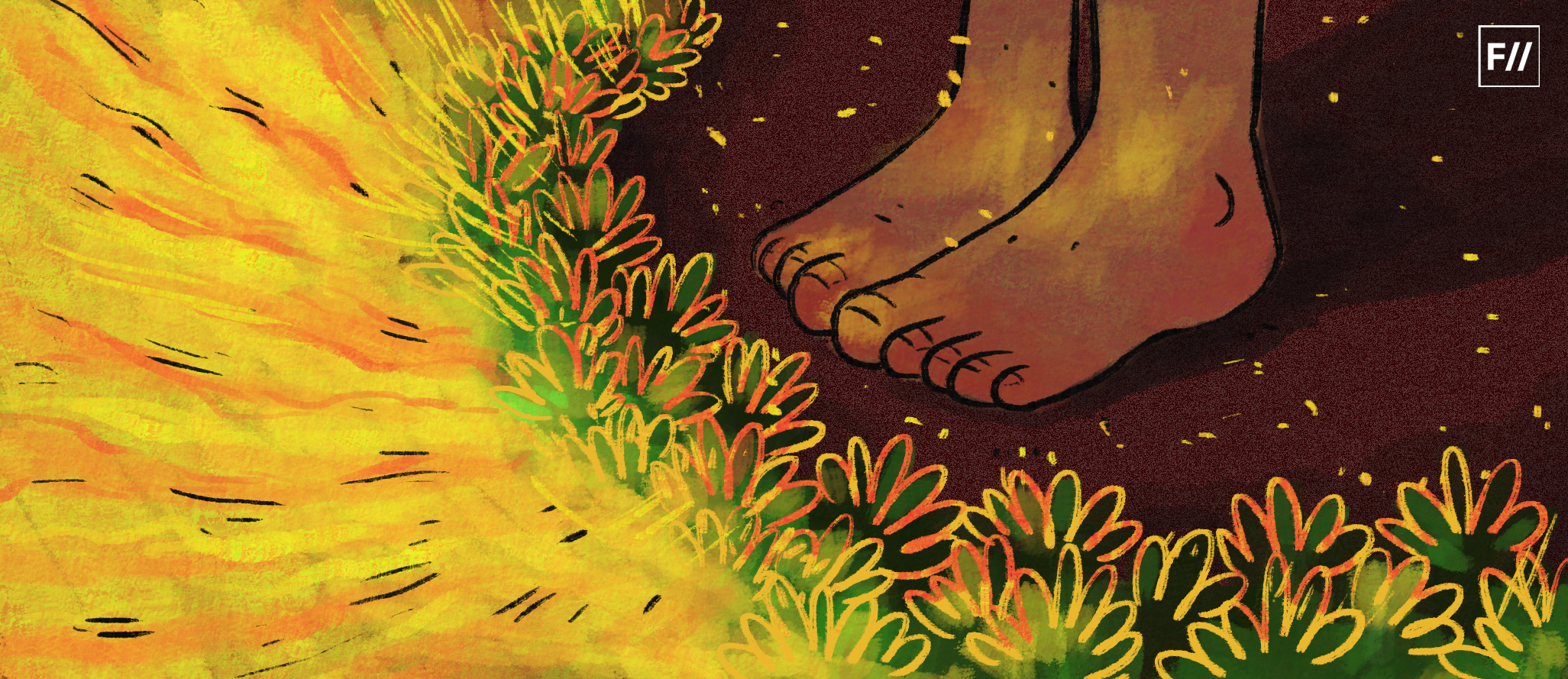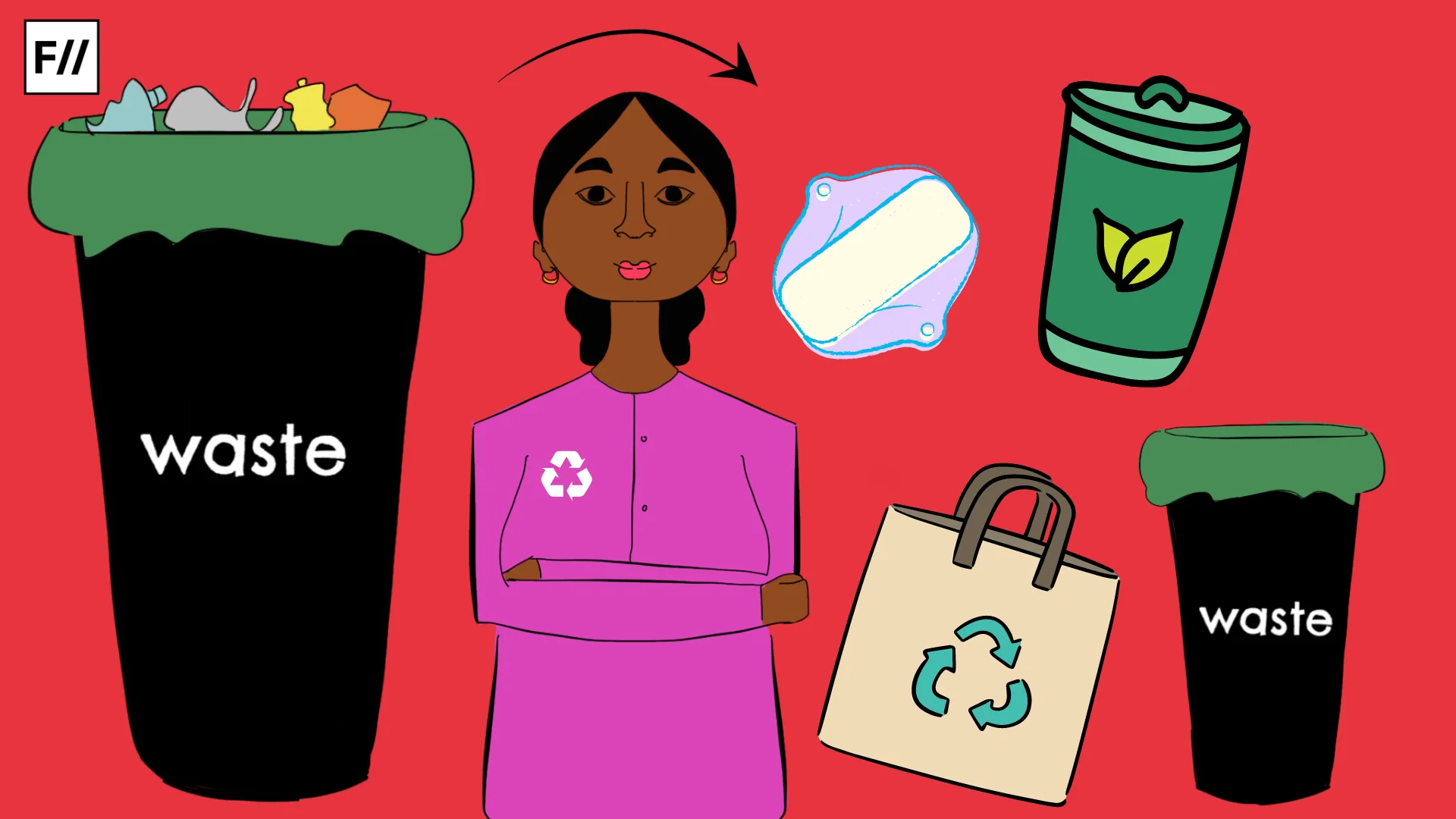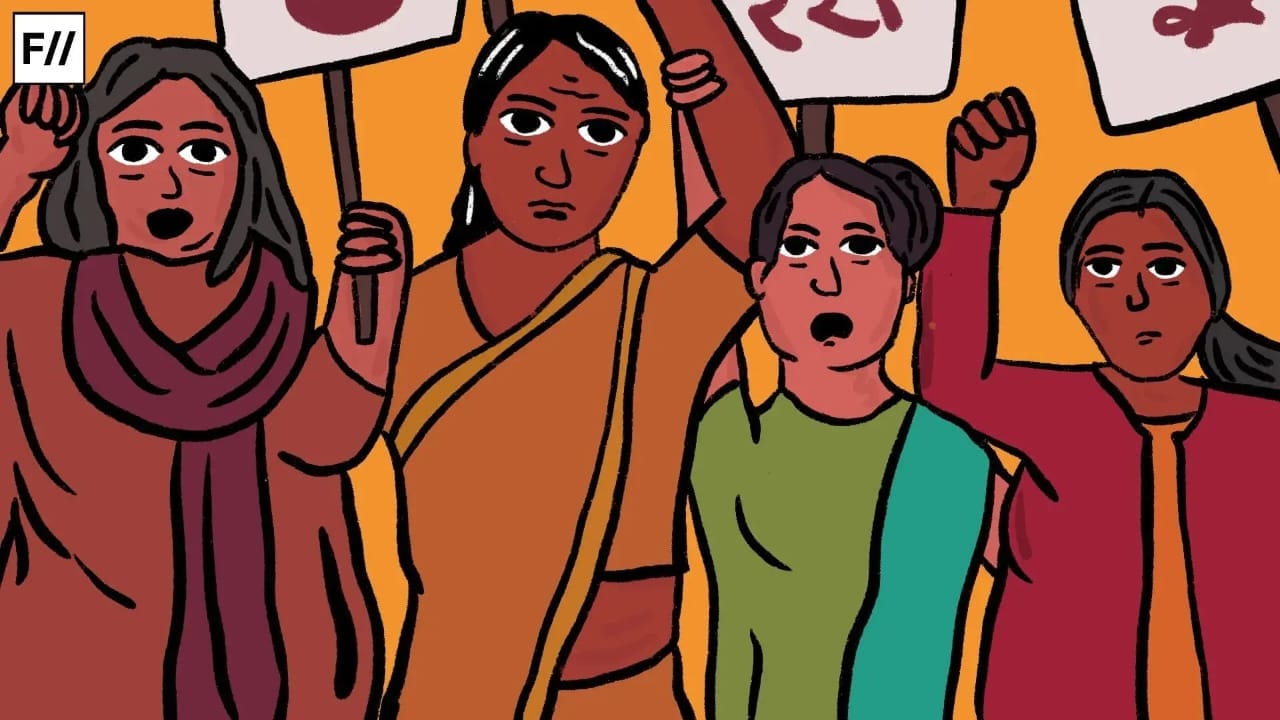Editor’s Note: This month, that is June 2020, FII’s #MoodOfTheMonth is Feminism And Environment, where we invite various articles about the diverse range of experiences which we often confront while interacting with our natural as well as social surroundings. If you’d like to share your article, email us at pragya@feminisminindia.com.
It’s irrefutable that any kind of natural calamity or disaster is completely out of control and causes widespread destruction, loss of lives and property. But what needs to be highlighted is the fact that men and women are impacted differently by these unpredictable or natural disasters. It might seem difficult to understand as to how something which is completely involuntary can have an impact on men and women in differing degrees.
The reason for this is certainly not about any kind of physiological differences in men and women. There are multiple reasons for this and largely all of them have their roots in the socio-cultural perception and practices, and the status given to women in the society. A research conducted by the Asian Development Bank in 2008 had shown that during natural disasters, the women population is highly likely to die. The data showed that women accounted for 61% of deaths from cyclone Nargis in Myanmar, 70-80% in the Indian Ocean tsunami.
Women have been placed at a lower pedestal with regards to men—they have a lower socio-economic status and their access to resources has always been bounded and narrow. Societies everywhere have patriarchy as their foundation. The status of women and patriarchy manifests itself even when a calamity hits. It has been constructed by the society that women are always supposed to stay indoors. Gender roles define their sole responsibility to be that of managing things in the four walls of their house and waiting for the orders by the male member of the family to act upon anything.
Hence, taking steps like evacuation during natural disasters become impossible for them unless they receive an order by the men of the house. Since the majority of the women stay at home while their male counterparts go out and work in buildings which are much more resilient to natural disasters, women on the other hand face major risks as their houses might not be as tough as the huge office buildings.
Since women have been systematically deprived of education and skill building has always been seen as unnecessary when it comes to women, they are not as equipped in skills which might be life skills and are of utmost importance to escape the wrath of certain calamities, like swimming. Therefore, in certain circumstances, they find it difficult to escape as opposed to men.
Hence, taking steps like evacuation during natural disasters become impossible for them unless they receive an order by the men of the house. Since the majority of the women stay at home while their male counterparts go out and work in buildings which are much more resilient to natural disasters, women on the other hand face major risks as their houses might not be as tough as the huge office buildings.
And all this extra hardship for women does not end; it continues even post natural disasters hit an area. Now that the disaster has caused widespread destruction leaving so many people homeless and without any money, food and resources, it becomes difficult for women and girls to get a share in these resources. It is not atypical to witness situations in which there is scarce food, where women of the family are the ones who are expected to give up on their share because of this notion that is constructed by the society where women are supposed to be caring, giving, motherly and of a ‘sacrificing’ nature. Therefore, whatever food is available after the disaster, women get very little of it precisely because of two reasons—first, the access to food just like all the other resources is never given to women to begin with and second, the distribution of it is done following the patriarchal norm.
Also read: Environment, Conflict And Sustainability: The Fisherwomen Of Kashmir
In countries with very low socio-economic status for women, it becomes all the more difficult because there is already a dearth of resources, there is an increased competition and it becomes extremely tough for women to gain space to compete to begin with, let alone gaining access which becomes a distant dream. All of this can be attributed to the socially constructed position that is given to women which sees women as weak and dependent on the men of the family. The plight of pregnant women is even more troublesome, because post natural disasters they might not get food and clean water, which makes both the mother and the foetus malnourished.
And all this extra hardship for women does not end; it continues even post natural disasters hit an area. Now that the disaster has caused widespread destruction leaving so many people homeless and without any money, food and resources, it becomes difficult for women and girls to get a share in these resources. It is not atypical to witness situations in which there is scarce food, where women of the family are the ones who are expected to give up on their share because of this notion that is constructed by the society where women are supposed to be caring, giving, motherly and of a ‘sacrificing’ nature.
Usually following the aftermath, people are forced to find shelter in refugee camps, where they don’t have access to proper sanitation and so, another major issue faced by women is that of sanitation. After a disaster which strips off people of practically everything that they had, it is definite that both men and women will face increased levels of stress and a disturbed emotional and mental state. But women go through increased levels of stress and trauma because of multiple reasons.
Now that people are left with nothing, women have an additional burden because it has been constructed that women are supposed to take care of their family, with the restricted resources, they are expected to manage feeding their family with the limited resources. Women who have lost the only earning member of their family goes through worse conditions, because now they need to struggle with both household work and managing money.
Clearly the society has not been able to embrace the fact that men and women are equal, women have always been treated and viewed differently. Post the destruction, increased levels of stress is very normal. But the effects of this stress are purely evil. Women face increased levels of domestic, sexual abuse because of this disaster induced stress and also, because there has been a temporary collapse of law and order.
Also read: Earth Day In A Covid-19 Hit World
Therefore, although both men and women are impacted by natural disasters, we need to acknowledge that women are impacted differently and are in a much worse state whether it be added stress to handle family, reduced resources, resorting to odd jobs to make ends meet or facing increased level of domestic, sexual abuse.
References
Shruti is a second year student pursuing B.A. Journalism hons. from Kamala Nehru College, Delhi University. She believes in bringing about a change, one discussion at a time. You can find her on Instagram.
Featured Image Source: Feminism In India




